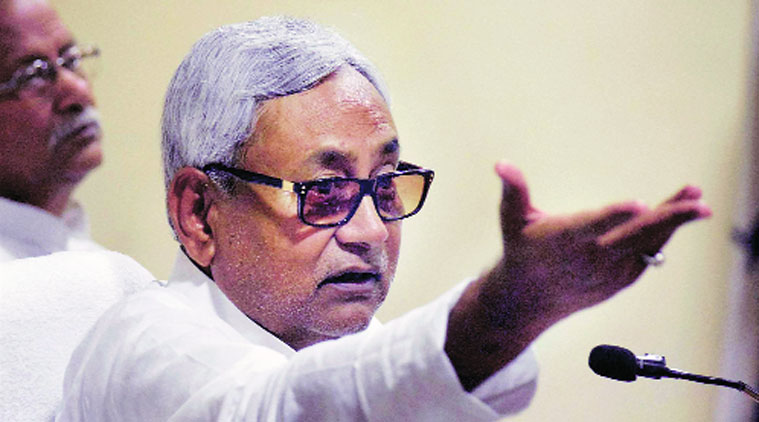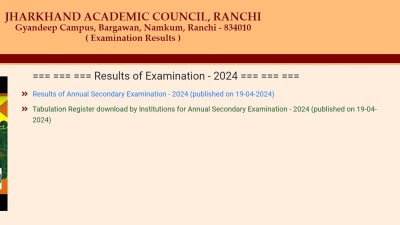- India
- International
Bleeding Bihar
It deserves special category status, especially after the 14th Finance Commission allocation.
 Nitish Kumar
Nitish Kumar
In his article ‘Nothing special about special category states any longer’ in The Indian Express (July 28), P. Vaidyanathan Iyer argues that Nitish Kumar’s demand for special category status to Bihar has been reduced to a political rallying point after the Centre accepted the recommendations of the 14th Finance Commission (FC14). Iyer also claims that FC14 has allotted substantially more resources to Bihar compared to the 13th Finance Commission (FC13). His claim is untenable.
It is true that allocation by FC14 out of the divisible pool is 136 per cent more than what was allocated by FC13. But the allocation figures are not at all comparable. The commission itself has noted that since there is little scope to increase the share of aggregate transfers from the Union government to the states, all that it has done is to suggest a compositional shift in the total transfers. As regards vertical distribution, under FC13, the size of the divisible pool of resources was 32 per cent of the net revenue receipts of the Union government. There were also other transfers through grants-in-aid. Under FC14, the divisible pool of resources is undoubtedly larger (42 per cent), but all other transfers are less, as noted by the commission itself. Hence, component-wise comparison of different transfer figures is bound to be misleading. We ought to compare only total transfers.
The impact of changes in vertical transfer patterns is similar in all states. But, whether FC14 was fair to Bihar can be judged only by analysing the horizontal distribution pattern. A decrease in the share of the divisible pool of taxes for Bihar from 10.92 per cent to 9.67 per cent is not merely a decrease, but a substantial reduction of more than one percentage point.
The reasons for the decrease in allocation are surprising. Bihar received less allocation because, first, income distance (to capture Bihar’s historical disadvantage) was given less weightage; second, area was given higher weightage (penalising a densely populated state like Bihar); and third, assigning some weight to forest area (which is very low in the Gangetic plains). Finally, Bihar has been penalised for the state government’s financial prudency, which was maintained by severely constraining spending on health, education and the maintenance of infrastructure.
However, states with revenue deficits have been rewarded. The allocation pattern is not only unfair but also defies the equalisation principle.

FC14 emphasised major Central transfer, which is quite laudable. So the share of tax increased by 10 percentage points. The total Central pool available for all states is Rs 40 lakh crore, out of which Bihar will be getting Rs 3.75 lakh crore in the next five years (2015-20). According to FC13, even though the financial kitty was small (Rs 14 lakh crore), Bihar got Rs 1.5 lakh crore. This is a substantial decrease of 1.3 percentage points. Notionally, this would entail a loss of Rs 61,800 crore for the state. The total tax devolution to states, as recommended by FC14, shows an increase by 2.71 times over FC13. However, the same for Bihar shows an increase of only 2.42 times, causing a huge loss of Rs 45,803 crore over five years (2015-20). With the dismantling of the Planning Commission, without working out a tangible alternative, Bihar will be subjected to further disadvantage. The pruning of Centrally Sponsored Schemes (CSS) and non-allocation of funds under the Backward Regions Grant Fund Programme and Integrated Action Plan for left-wing extremism affected districts will bleed Bihar financially. Not only have some of the CSS been pruned, states’ share in the rest has been increased substantially causing an additional financial burden to the state. There has not been any clarity about the fate of the financial dividend Bihar was getting on the basis of the Bihar Reorganisation Act, 2000. In the last days of UPA 2, the quantum of funds under this was increased.
On the specific question of the Special Category States (SCS), one must remember that Telangana was granted the status recently. In what way is Telangana more disadvantaged than Bihar? In the present scenario of a “market-centric” development strategy, the possibility of attracting private sector investment to a state is limited in the absence of tax incentives. Such incentives can generally be made only by those states which have SCS status. A special category state also gets preferential treatment in federal assistance and tax breaks. Similarly, the conclusion of the Raghuram Rajan committee that Odisha is more disadvantaged than Bihar also defies logic. My note of dissent to the report points to its obvious methodological limitations.
The writer is member secretary, Asian Development Research Institute (ADRI), Patna.
EXPRESS OPINION
More Explained
Apr 19: Latest News
- 01
- 02
- 03
- 04
- 05









































